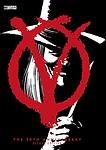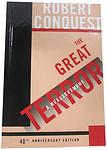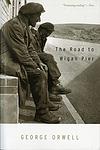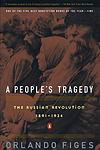The Greatest British "Political Ideologies" Books of All Time
Click to learn how this list is calculated.
This list represents a comprehensive and trusted collection of the greatest books. Developed through a specialized algorithm, it brings together 300 'best of' book lists to form a definitive guide to the world's most acclaimed books. For those interested in how these books are chosen, additional details can be found on the rankings page.
Genres
The "Political Ideologies" category encompasses a diverse collection of books that delve into the broad spectrum of political beliefs, systems, and theories that have shaped human societies throughout history and continue to influence contemporary governance and social structures. This genre offers readers an exploration of the foundational principles, moral values, economic models, and visions for societal organization that underpin various political ideologies, such as liberalism, conservatism, socialism, communism, fascism, and anarchism, among others. It provides critical insights into how these ideologies have been conceptualized, their historical development, key proponents, and the practical implications of their implementation. Through comparative analysis and theoretical discourse, books in this category aim to enhance readers' understanding of the political landscape, encourage critical thinking about governance and policy, and foster informed civic engagement. Whether written by political scientists, philosophers, historians, or activists, these works serve as essential resources for anyone seeking to grasp the complexities of political thought and its impact on the world.
Countries
Date Range
Reading Statistics
Click the button below to see how many of these books you've read!
Download
If you're interested in downloading this list as a CSV file for use in a spreadsheet application, you can easily do so by clicking the button below. Please note that to ensure a manageable file size and faster download, the CSV will include details for only the first 500 books.
Download-
1. Nineteen Eighty Four by George Orwell
Set in a dystopian future, the novel presents a society under the total control of a totalitarian regime, led by the omnipresent Big Brother. The protagonist, a low-ranking member of 'the Party', begins to question the regime and falls in love with a woman, an act of rebellion in a world where independent thought, dissent, and love are prohibited. The novel explores themes of surveillance, censorship, and the manipulation of truth.
-
2. Brave New World by Aldous Huxley
Set in a dystopian future, the novel explores a society where human beings are genetically bred and pharmaceutically conditioned to serve in a ruling order. The society is divided into five castes, each with its specific roles. The narrative follows a savage who rejects the norms of this new world order and struggles to navigate the clash between the values of his upbringing and the reality of this technologically advanced, emotionless society. His resistance prompts a deep examination of the nature of freedom, individuality, and happiness.
-
3. Animal Farm by George Orwell
"Animal Farm" is a satirical fable set on a farm where the animals revolt, overthrow their human farmer, and take over the running of the farm for themselves. The story is an allegory of the Russian Revolution and the rise of Stalin, and the tale is told by the animals that inhabit the farm, primarily pigs who become the ruling class. Despite their initial attempts at creating an equal society, corruption and power ultimately lead to a regime as oppressive as the one they overthrew.
-
4. Homage to Catalonia by George Orwell
The book is a personal account of the author's experiences during the Spanish Civil War, specifically his time with the POUM (Partit Obrer d'Unificació Marxista) militia in Catalonia. He provides an in-depth look at the social revolution that took place, the daily life of a soldier, the political infighting and betrayals among the Republican factions, and his eventual disillusionment with the cause he initially supported. The book is both a war memoir and a detailed analysis of a complex political situation.
-
5. On Liberty by John Stuart Mill
This influential philosophical work explores the concept of personal freedom and societal limits, arguing that individuals should have the right to act as they want, provided they do not harm others. The book elaborates on the nature and limits of the power that can be legitimately exercised by society over the individual, and champions individuality and nonconformity. It also discusses freedom of speech, asserting that all opinions should be openly expressed to prevent any single viewpoint from becoming dogma.
-
6. The Open Society by Karl Popper
This book is a critique of totalitarianism and a defense of liberal democracy. The author argues against the concept of a perfect, immutable society, instead advocating for an "open society" that allows for constant change and improvement. He criticizes theories of historical determinism and the notion of "the collective", emphasizing the importance of individual freedom and human rights. The book also examines and challenges the philosophies of Plato, Hegel, and Marx, linking their ideas to the rise of fascism and communism in the 20th century.
-
7. Utopia by Thomas More
This book is a fictional work that presents a detailed description of an ideal society on an imaginary island located in the Atlantic Ocean. The narrative is presented as a dialogue between the author's character and a traveler who has visited the island. The society described is devoid of private property, with citizens living in communal dwellings, and it promotes education, religious tolerance, and a welfare state. The book explores political, social, and religious customs, providing a critique of European society and offering an alternative model of social organization.
-
8. V for Vendetta by Alan Moore
"V for Vendetta" is a dystopian graphic novel set in a future totalitarian England. The story follows a mysterious, anarchistic vigilante known only as "V" who wears a Guy Fawkes mask and seeks to overthrow the oppressive government. The novel explores themes of freedom, oppression, and the power of ideas, as well as the moral complexities of vengeance and violence. It also delves into the personal journey of a young woman named Evey, who becomes V's unlikely ally.
-
9. The Great Terror by Robert Conquest
"The Great Terror" is a comprehensive analysis of Joseph Stalin's purges in the Soviet Union during the 1930s. The book delves into the brutal and systematic elimination of potential political rivals, intellectuals, and ordinary citizens, who were falsely accused of espionage, sabotage, or being counter-revolutionary. It provides a detailed account of the show trials, executions, and forced labor camps, shedding light on one of the darkest periods in Soviet history.
-
10. The Road to Wigan Pier by George Orwell
This book is a sociological exploration of the bleak living conditions among the working class in Lancashire and Yorkshire, England, in the 1930s. The author, who lived among the people, vividly describes the hardships of the poor and criticizes the systems that make them so. The latter part of the book presents a discussion on class and possible socialist solutions to the issues presented in the first part. It's a powerful critique of British society at the time and a call for better conditions for the working class.
-
11. The Last Days of Hitler by Hugh Trevor-Roper
This book delves into the final days of Adolf Hitler's life, providing a detailed account of the events that unfolded in his bunker during the last ten days of World War II. It is based on interviews with surviving members of Hitler's close circle and other witnesses, as well as captured German documents. The author presents an in-depth analysis of Hitler's mental state, his relationships with his staff, his suicide, and the subsequent cover-up by his loyal aides. The book also debunks various myths and rumors about Hitler's death and escape.
-
12. A People's Tragedy by Orlando Figes
"A People's Tragedy" is an in-depth exploration of the Russian Revolution from 1891 to 1924. The book offers a comprehensive study of the Revolution's roots, its progression, and its aftermath, from the famine that gripped Russia in the 1890s, through the abdication of Tsar Nicholas II, to the establishment of the Bolshevik regime and the death of Lenin. The author uses a broad range of sources, including personal letters, diaries, and government documents, to present a detailed, humanized view of the Revolution's impact on everyday individuals, bringing to life the experiences of peasants, workers, soldiers, and intellectuals.
Reading Statistics
Click the button below to see how many of these books you've read!
Download
If you're interested in downloading this list as a CSV file for use in a spreadsheet application, you can easily do so by clicking the button below. Please note that to ensure a manageable file size and faster download, the CSV will include details for only the first 500 books.
Download










